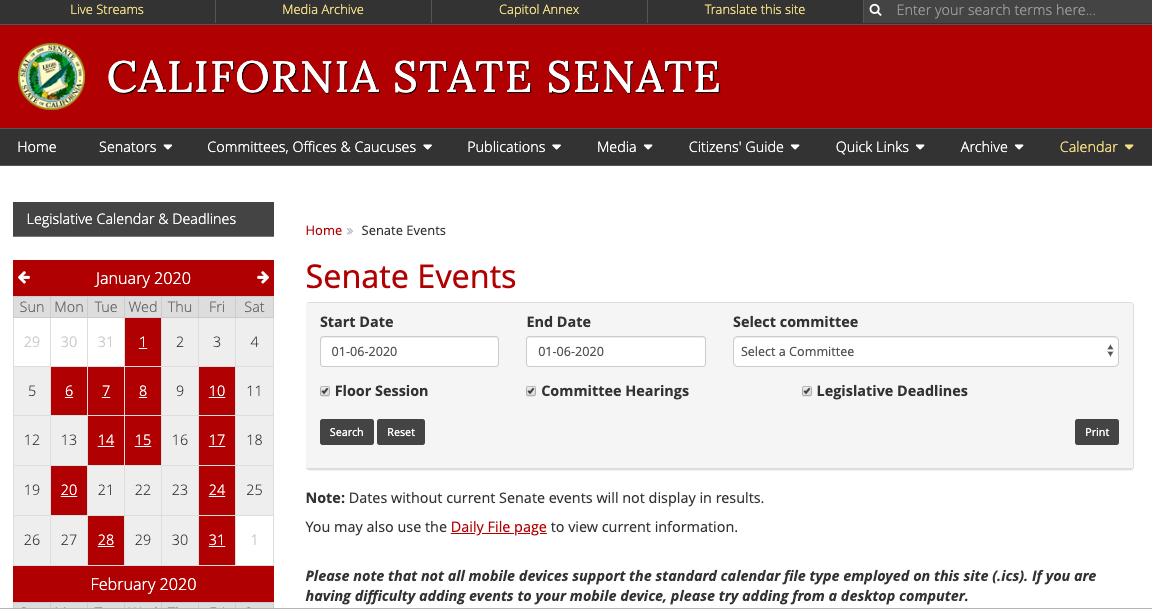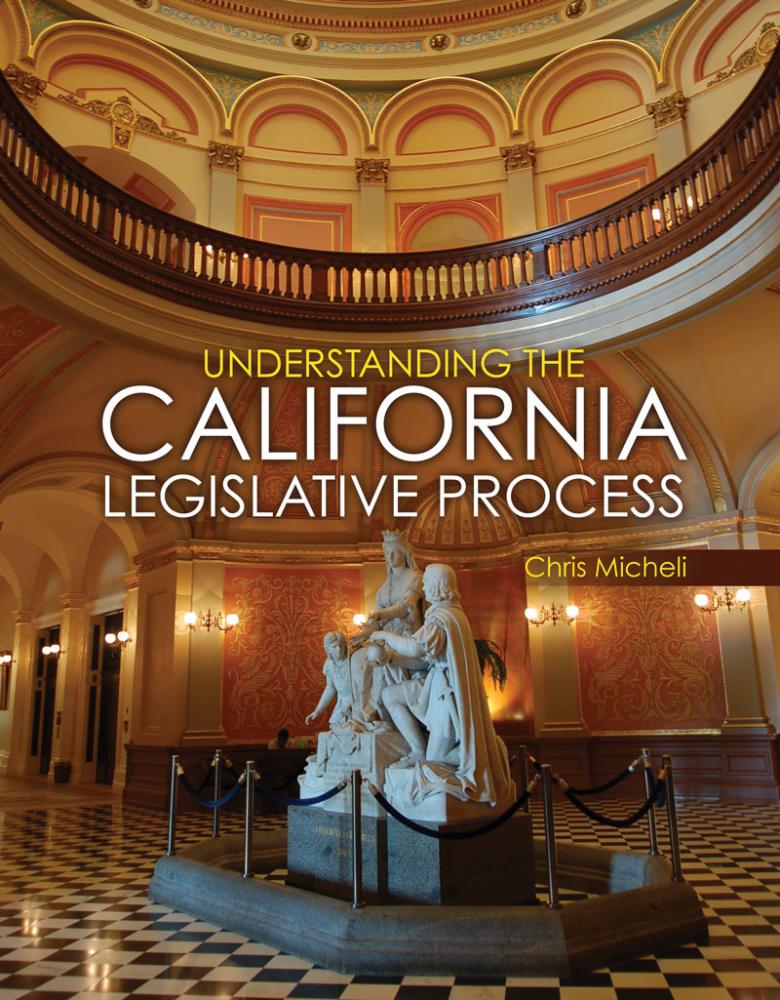
Legislative calendar, Senate. (screen capture)
California’s Legislative Calendar
The legislative calendar establishes a schedule for the 2-year Legislative Session
By Chris Micheli, January 6, 2020 5:57 am
The calendar for the California Legislative Session is important for those working in and around the State Capitol. The California Constitution provides the dates of convening and adjourning the legislative session. Other than that, the Legislature has freedom to set its own calendar of meetings and recesses.
The legislative calendar establishes a schedule for the 2-year Legislative Session and provides important deadlines for the legislative process. While there is a general outline for the legislative Session, the Senate and Assembly Daily Files contain the scheduled events for each day the Legislature is in session, including such things as committee meetings and floor sessions, along with holidays and important dates.
Article IV of the state Constitution establishes when the Legislature is to be in session. Section 3 of Article IV states that the Legislature is to convene in regular session on the first Monday of December in each even-numbered year to organize. The Legislature must adjourn by November 30 of the following even-numbered year.
Generally, the Legislature begins meeting the first week in January each year and concludes its work for the year either in mid-September (odd-numbered year) or August 31 (even-numbered year). During the calendar year, the Legislature traditionally schedules two recesses: a one-week spring recess (which is generally the week before Easter) and a summer recess that typically lasts four weeks.
In addition, several one-day holidays are recognized by the Legislature. The Legislature eliminated the Columbus Day holiday and one of the President’s Day holidays several years ago. Legislators are permitted to provide one floating holiday for their personal staff members.
In addition to the regular session, the Governor may, by proclamation, require the Legislature to meet in special session. A special session may run concurrently with the Legislature’s normally scheduled meeting time and/or during its recesses. During the special session, the Legislature may act only on subjects specified in the proclamation.
Aside from the fact that a special session is limited to the subject matter for which it was called, there are no significant differences in process between a regular and special session. However, the effective dates for bills enacted during a special session are somewhat different than those for a regular session. Section 3 of the California Constitution provides the Governor with the power to call special sessions of the Legislature.
The legislative calendar for the California Legislature contains rules and guidelines that shape the day-to-day business of the Assembly and Senate. Some of the rules found in the calendar are from the California Constitution, such as the January 1 date for the day that new laws usually take effect. Others come from laws passed by the Assembly and the State Senate.
- Frequently Asked Questions about State Agency Ethics Training - April 26, 2024
- Frequently Asked Questions about When Elected Officials Take Office - April 25, 2024
- Frequently Asked Questions About Ethics Training for Local Agencies - April 24, 2024




